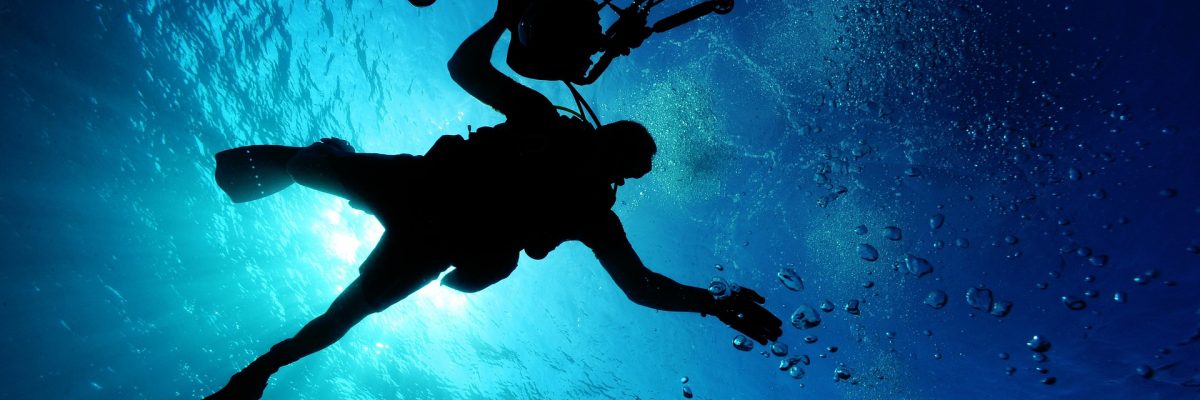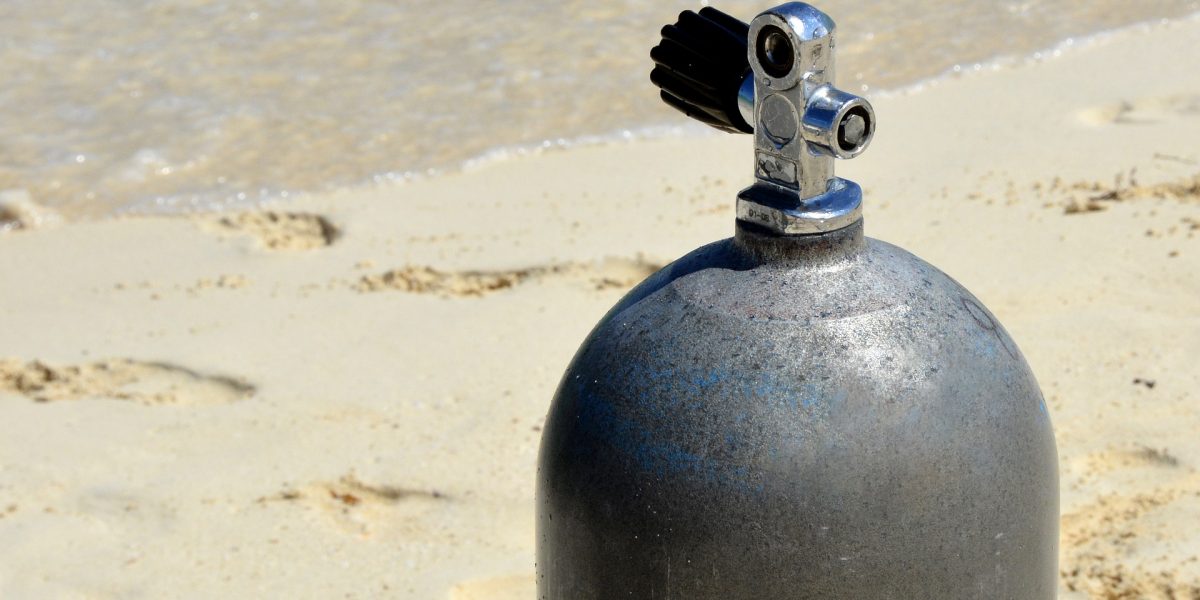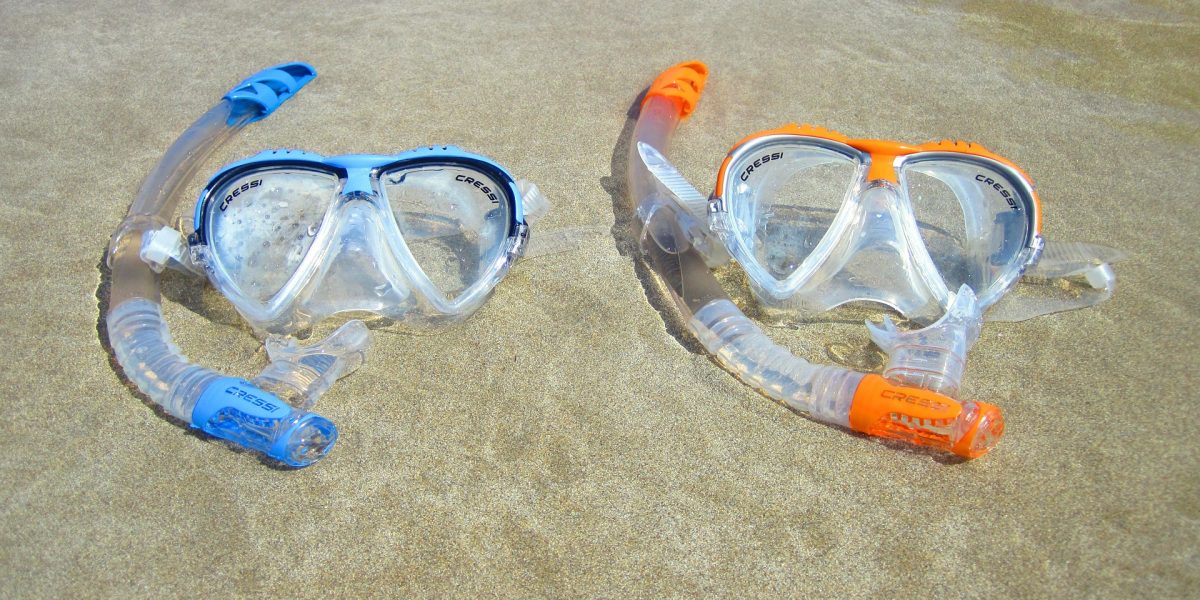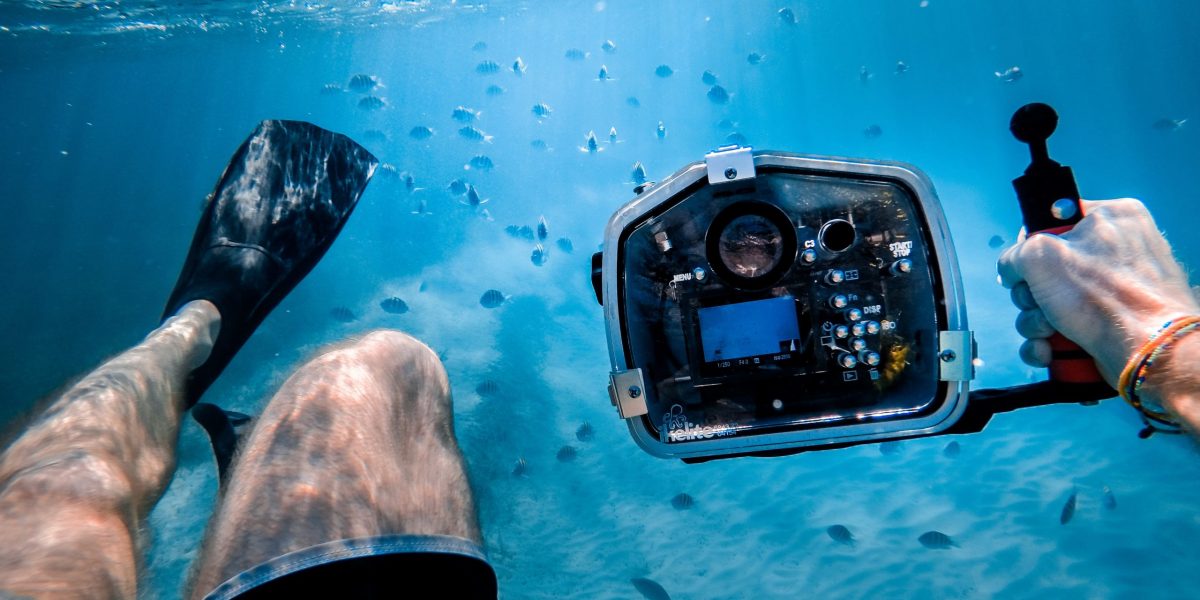Scuba divers are a part of a whole other world, by diving deep beneath waters far beyond what our eyes can see they interact with creatures unfamiliar to most men. However, for newcomers, getting started may be both exhilarating and overwhelming.
So, what is scuba diving? Scuba diving is a sport in which participants dive underwater to explore the ocean. Most people engage in scuba diving as a recreational sport when on vacation or holiday.
There are, however, numerous types of scuba diving: Recreational Diving, Sport Diving, Commercial Diving and Technical Diving.
First things first, can you dive if you are not certified?
Yes, but your options are restricted, and you must first complete some basic training and be a beginner diver at least. To see if diving is for you, attend an introductory Discover Scuba Diving (DSD) training course. Beginners are often taught how to scuba dive in an enclosed space, such as a swimming pool or confined places in open waters.
If your discovery dive goes well and you want to dive deeper in open waters, the next step is to become certified, find everything you need to know about getting your scuba diving certification here »
The Professional Association of Diving Instructors (PADI) is the world’s largest scuba diving certification organization, although it is not the only one.
It is recommended to start with the big agencies when seeking for information to help you select which training agency is ideal for you. PADI, NAUI, SSI, BSAC, and SDI are among the certifications available.
The correct scuba diving certification programme is critical to your safety and enjoyment of the sport. There are numerous points to consider while selecting one. Often people learn to scuba dive at a center that is close to where they live. However, other things to keep in mind are: What type of diving (recreational, technical, rebreather, etc.) do you wish to get certified in? What is the duration of the course and how much does it cost per day/weekend session? What are your time constraints, such as job or school schedules?

For those interested in obtaining an entry-level diving certification, most scuba certification programmes have a list of prerequisites. A valid driver’s license, CPR certification, age, and sometimes a basic level of swimming ability the most common.
Even as a beginner diver you will need basic equipment. Scuba gear diving equipment is available at most centers to rent, which is usually ideal for beginners. Here are a few of the things included »
Scuba Cylinder: The diving cylinder holds the compressed air that will be used underwater.
Weights: The weights help you stay balanced during and, more vitally, at the finish of your dive. Can you believe, a divers wetsuit and equipment would float without the extra weight!
Fins: Fins provide more surface area to work with the water to propel you forward.
BCD: This is the buoyancy control device, sometimes known as a BCD or BC. While many designs exist, this vest-style garment ties the dive gear to you and helps in maintaining neutral buoyancy.
Regulator: A regulator delivers air to the diver that has been reduced from the tank’s high pressure to ambient pressure.
Wetsuits, dry suits, dive skins, masks and snorkels are literally the basics and every scuba diver, beginner diver or not needs them!

When you decide to learn to scuba dive it is similar to many other water sports such as swimming, kayaking, and surfing. Scuba divers should stick to the basic diving regulations set by the dive professional.
Once you learn to scuba dive there is no going back. There are millions of reasons to try scuba diving. You will be able to explore and discover an universe unlike anything we have ever seen before.
Scuba diving provides an unparalleled sense of freedom and peace. You can truly disconnect from technology and lose yourself in a “Zen” space. Once you start diving, it is hard to stop.
Diving is a multifaceted hobby with so many advantages. You will almost certainly see some unforgettable and colorful underwater life and make new friends for life! Plus, you’ll get some sun, breathe some salty air, and feel a sense of accomplishment for doing something that only a small percentage of the population gets to do.

Scuba diving insurance prevents divers from having to pay medical fees (from their own pocket) for potentially fatal injuries that are not generally covered by health or travel insurance policies.
As a general rule, the deeper you dive, the more likely it is that your insurance will not cover the dive. Because of the additional dangers connected with diving, specialized scuba diving insurance is worth the extra effort, research, and money.
Although scuba diving is relatively safe, when done within the limits of training and experience there are unique risks associated with what insurance companies frequently consider a “extreme sport.” Diving insurance covers medical expenses incurred as a result of scuba diving accidents. When diving within the limitations of your training, the chances of a serious scuba diving accident are low, but the expenditures are high: treatment in a recompression chamber following the development of the bends can easily cost you thousands of dollars.
Scuba diving is all the rage these days but what about underwater photography? The colorful fish, coral colonies, and enormous, magnificent marine animals are just a few of the reasons why the undersea environment is spectacular and draws many photographers.
If you want to know how to take pictures underwater and be good at it, don’t forget to bring your camera and make sure you know how to swim well. The most crucial first step is to ensure that you are as comfortable in the water as possible before diving with a camera.
Underwater, cameras might divert your focus away from your buddy, your dive computer, and your air pressure. If you’re a seasoned diver, you’re used to paying attention to all of those details. Basically, you will get better pictures by becoming a better diver.
Taking excellent underwater photographs can be tough, especially at first. Here are some pointers that will tell you how to take underwater photos well. And don’t forget to have fun; it’s not every day that we get to see, let alone capture, life underwater!

Diving allows you to escape the craziness of the world, the sounds of traffic, and the anxieties of everyday life. Divers all across the world are always on the lookout for something uncommon and magical. And the best part is, the world of scuba is so deep, literally, that buying gifts for scuba divers can be quite a journey!
From the latest technology to items with sentimental value, there is no dearth of options. Instead of an impersonal gift card, why not buy scuba diving gifts for her that are a tad bit more personal and unique?
Anything related to the ocean or that has a positive impact on our blue planet will be far more valuable than a gift card. You can pick from something that ranks high in utility value or something that is sentimental and irreplaceable.

Crafting unforgettable ocean experiences in Cabo, where luxury, adventure, and breathtaking beauty come together for memories that last a lifetime.
DIVE SHOP LOCATION:
Blvd. Marina #7D Local 37 Int. Plaza Gali. Col. Centro CP 23450 Cabo San Lucas, BCS
TEL. OUTSIDE OF MEXICO:
Tel: 52 624 14 438 71
Cell: 52 1 624 3589875